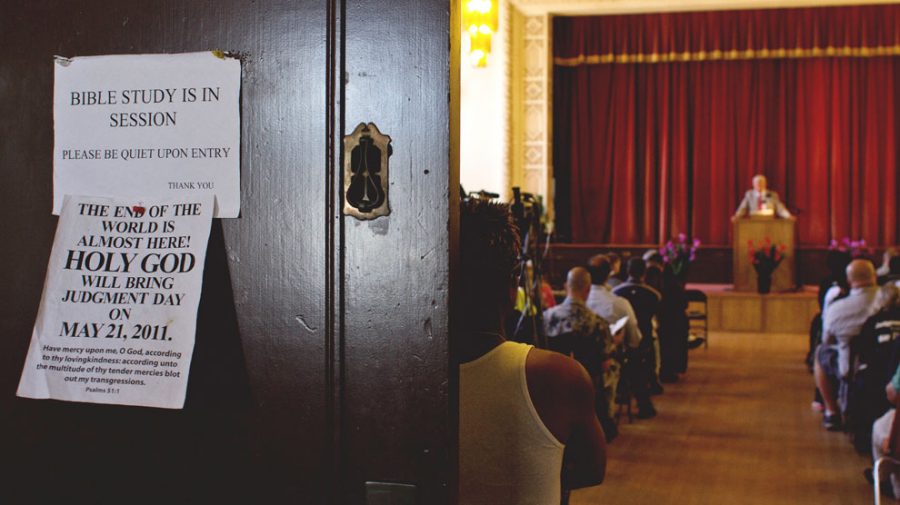 So, the rapture didn’t happen. Judgment Day didn’t occur on May 21, 2011, at 6 p.m., as Harold Camping had predicted, using numerology to interpret a series of Bible passages.
So, the rapture didn’t happen. Judgment Day didn’t occur on May 21, 2011, at 6 p.m., as Harold Camping had predicted, using numerology to interpret a series of Bible passages.
Leading up to the day, Camping and his followers received mixed, but mostly negative, reactions from both atheist and Christian organizations about his predictions of the date of the “end of times.”
Theodore Trost, a UA religious studies department chair and professor, said he thinks that it doesn’t take much insight to predict that the world will end at some point, but for someone to claim to know the exact date raises questions.
“We all know we are going to die,” Trost said. “But who knows the hour?”
Trost said the idea of the rapture comes from the readings of 1 Thessalonians 4 and Matthew 24 filtered through the book of Revelation in the Bible, where a radical separation occurs between people who believe in Jesus Christ. Then, as Revelation states, a battle is waged between a Warrior Christ and the Anti-Christ.
“This seems like a thin reed to base an entire worldview upon,” he said. “This isn’t what most of the Bible is about.”
After May 21 passed without Camping’s predictions taking place, he said he believed that a spiritual judgment had occurred on that date, and that the physical Rapture would occur on Oct. 21, 2011.
Camping isn’t the only one who attempted to predict Judgment Day. Trost said that William Miller, a Baptist preacher, predicted the date as March 23, 1843, switched it to March 21, 1844, and after failure, predicted the world would end on Oct. 22, 1844. The aftermath of Miller’s false prophecy is known as “The Great Disappointment.”
“Like Camping’s followers, the ‘Millerites’ were at a loss when the world kept on going,” Trost said.
Trost said he doesn’t think that Camping, age 90, will live long enough to see his prediction of the global “physical” apocalypse come to pass.
In comparison, Russell McCutcheon, professor in the department of religious studies, said he doesn’t find Camping very interesting because he doesn’t attract a lot of curiosity.
“These are claims on affairs that can’t be tested,” McCutcheon said. “So, they’re potentially always ‘right.’”
McCutcheon said he thinks that Camping’s later claims of the “invisible” judgment that occurred on May 21 could have been predicted by any person who studies social theory.
“For all we know, Camping could come back and say, ‘Well, it did happen, it just didn’t happen to somebody that you know,’” he said. “So, he’s still right, despite being wrong.”
Hamilton Henson, a senior majoring in telecommunications and film, said he thinks Camping’s prediction, taken from any point of view, sounds illogical.
“From a secular standpoint, any prediction about the rapture sounds absurd,” Henson said. “But, even from a Christian standpoint, it’s pretty off base.”
Henson quoted Matthew 24:36 to back up his opinion on Camping’s theory: “But of that day and hour knoweth no one, not even the angels in heaven, neither the Son, but the Father only.”
“Anyone calling dates on the rapture is out of line with scripture,” Henson said.
For more information on his Judgment Day claims, visit Camping’s website at familyradio.com. For information on life after Oct. 12, 2011, visit the Facebook event “Post Rapture Looting.”









